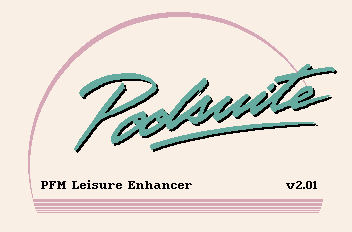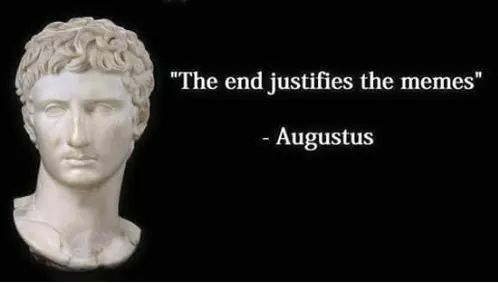Before I get on a watchlist, I want to clarify that in this blogpost I will not be talking about the physical Silicon Valley; just as the Library of Alexandria’s power lied in its vast data collection and storage, Silicon Valley’s power is derived from its endless collection and more so, presenting and sharing of data. Not its data is the problem which creates a power imbalance between its rulers and its ruled ones; rather, it’s the concentration of this data. Like The Library of Alexandria, Silicon Valley has become a house of power that does not necessarily respect the rights of its data suppliers to sustain and broaden its monopoly of knowledge. This is backed by Tristan Harris, a former scroll keeper of the modern-day library who didn’t enjoy exploiting people anymore and talks extensively about this in Neftlix Original The Social Dilemma and in the video below.
Although the Classical Library of Alexandria burning down probably meant a huge loss in knowledge about our past, it most definitely meant a loss in power of its rulers. And although Silicon Valley harbours immense amounts of information and technological innovation, it is currently controlled by a tiny, tiny group of people who are not inventing new technologies to better the world, nor make information accessible to a broader audience. Its rulers – Facebook, Apple and Google – work to benefit their positions of powers and their wallets. As these totalitarian companies’ algorithms get better and better, action to reclaim our time and free choice of how we want our data to be handled and how we want to handle the data that is handed to us is necessary. Here are three steps to burn Silicon Valley down (metaphorically).
Accept that we have lost our first battle to AI
If we want to reclaim power over our minds in the battle with Silicon Valley, our first step will be to accept that we have lost it. As long as we see ourselves as entirely responsible and accountable for our social media and smartphone abuse, ‘the rulers of the library’ stay out of shot. Although intellectual consensus tells us that smartphones and social media exploit the ‘weaknesses’ of the human mind, day-to-day users in my circle (including myself) tell me they unconsciously mostly blame themselves after a day of wasting time online or – although being fed up with more information – keep checking their phones every 5 minutes. Ask a friend whether they feel like they spend too much time on their smartphones: when they say yes, it is ultimately said with a sense of shame, as if they should be stronger than to be addicted to their devices. When they do so, vigorously tell them that the only thing they could be ashamed of is the fact that they still believe their human minds are unexploitable. Recent technological developments of AI algorithms have denied our Enlightenment-conception of the world of which they are an effect; that everything can be made and controlled by ourselves, including our instincts and animal brains. It’s about time we accept that we are but intelligent monkeys who decided to design tools one day.
Hip hip hooray, power to the people: selling information and advertising is illegal
This philosophical realization is needed to acknowledge that we are not the ones accountable for our love/hate-relationships with electronical devices. Since history has shown that powerful people will not perse willingly give up their moneymaking-machines, chances are that tech-developers won’t go down without a legal fight. It’s time to hold the scroll keepers of the library accountable for exploiting human social instincts for financial benefits and use advertising tactics based on an unexplainably detailed monitoring of user behaviour online. When advertisement – a craft which relies on thought-out tactics and imagery appealing and persuasive to the human eye – is combined with a spot-on profile of individuals and then presented to those individuals through push notifications, one’s mind is controlled in order to control one’s wallet. Karl Marx and George Orwell have taught us better than that! As they are in the physical world, manipulation and privacy-infringing should be also made illegal in the digital world. After we have done so, let’s follow it up with reparation fees from the rulers of the library to the ruled ones, who are after all the ones supplying their huge databases and bank accounts.
We are all vulnerable and not waiting for that to be exploited
Now that we have gotten rid of the rotten apples in the field of technological innovation, it’s time to take California’s tech-wizards back to their Silicon Roots; to actually let them create technologies again that benefit their users. When the tech-revolution of Silicon Valley started, main companies’ founders such as Steve Wozniak (Apple) or Larry Page and Sergey Brin (Google) still had ideals of keeping information free and accessible and to not be evil. However, these ideals have seemed to vanish as assisting has turned to exploiting. When you feel lonely, all social media apps do is try to keep you on their platform, which will result in you feeling even more lonely. Wouldn’t it be nice to relive the ideal-based tech-revolution and let technology resolve feelings of loneliness, isolation and polarisation instead of causing it? And by that, use our epicentre of knowledge and data, our modern-day library of Alexandria, to the people’s benefit, instead of some billionaires’ benefit? By burning down the power structure of library rulers not concerned with spreading knowledge, but only with retaining a monopoly over it? After all, we will help the scroll keepers and library rulers as well; In this way there will be no need to reclaim our rights violently and resort to the actual burning down of a beautiful and monumental yet mightily powerful knowledge centre: Silicon Valley.
Footnotes
TEDtalksDirector, “How a Handful of Tech Companies Control Billions of Minds Every Day | Tristan Harris,” YouTube (YouTube, July 28, 2017), https://www.youtube.com/watch?v=C74amJRp730.




Recent Comments